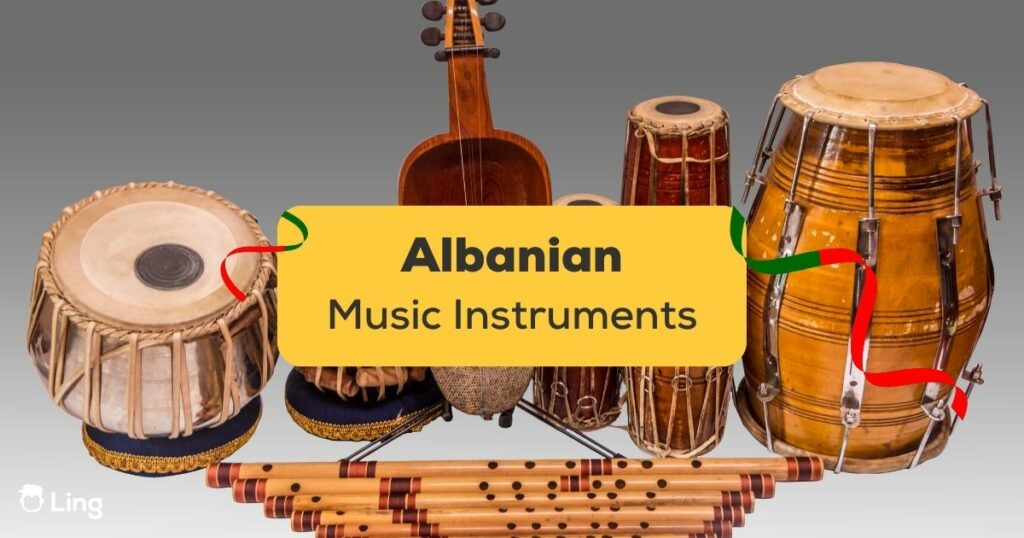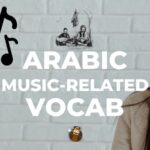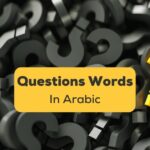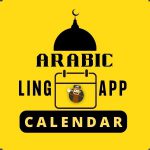Curious about the music instruments in Albanian? Music is an essential part of Albanian culture, and the country boasts a rich tradition of musical instruments. From the melancholic sounds of the cifteli to the powerful rhythm of the daulle, Albanian musical instruments offer a unique blend of history and artistry.
We will explore the different types of musical instruments in Albania and learn how to say their names. So, let’s dive in and discover the beauty of Albanian music instruments!
Albania Musical Instruments Vocabulary
If you’re interested in learning about Albanian music and culture, familiarizing yourself with the vocabulary of Albanian musical instruments is a great place to start.
If you are curious about the country’s musical heritage, understanding the names of different instruments can deepen your appreciation of the music and the culture it represents.
Here are the most common Albanian musical instruments, along with the translation:
| Albanian Musical Instrument | Description |
|---|---|
| Cifteli | A stringed instrument similar to a mandolin |
| Çiftelia | A type of lute |
| Sharki | A bowed stringed instrument |
| Lahuta | A bowed stringed instrument used in traditional Albanian music |
| Çifteli i veriut | A northern Albanian version of the cifteli |
| Defi | A frame drum |
| Tapani | A large cylindrical drum |
| Daulle | A type of double-headed bass drum |
| Zurna | A kind of traditional woodwind instrument |
| Surlja | A kind of bagpipe |
| Mandolina | Mandolin |
| Klarineta | Clarinet |
| Fyell | A kind of flute |
| Violinë | Violin |
| Piano | Piano |
| Akordeoni | Accordion |
| Kitarë | Guitar |
| Bateri | Drums (usually referring to a drum kit) |
| Harpa | Harp |
What Instruments Are Used In Albanian Music?
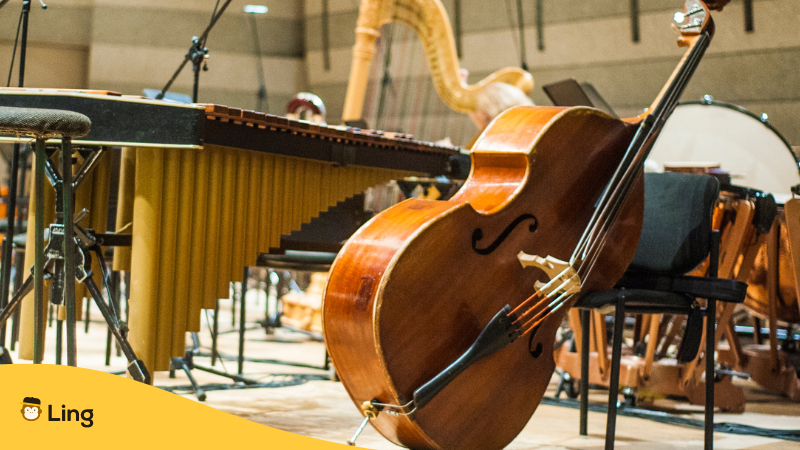
A mix of traditional and modern instruments characterizes Albanian music. With the rich combination of instruments, musicians could compose modern Albanian classical music, modern Albanian popular music, and rural folk music.
There are several instruments used in Albanian music, including the following:
Çifteli
A plucked string instrument with only two strings, mainly played by the Gheg people of northern and central Albania, southern Montenegro, and Kosovo. Albanians frequently use the çifteli in weddings, concerts, and by many musicians, such as Nikollë Nikprelaj.
Kaval
A traditional flute made of wood or reed with six finger holes and no keys. The kaval is played by blowing across the top of the instrument, similar to a recorder, and is commonly used in traditional Albanian folk music and Albanian folk songs.
Gajda
A type of bagpipe with a goat or sheepskin bag. The gajda has a double-chanter and a single drone and is played by blowing air into the bag and squeezing it to produce sound. The gajda is mainly played in northern and central Albania, Kosovo, and Macedonia.
Fyell
A type of clarinet with a single-reed mouthpiece and six holes. The fyell is commonly used in southern Albanian folk music, particularly in Korca, Vlora, Saranda, Delvin, Permet, Leskovik, and Pogradec.
Tambourine
A percussion instrument consisting of a circular frame with small metal jingles around the edge. The tambourine is commonly used in traditional Albanian and urban folk music. It is played by striking or shaking the instrument.
What Are The Words For Other Common Musical Instruments In Albanian?
If you’re a music enthusiast or a musician traveling to Albania, you might want to know the names of common musical instruments in Albanian.
Knowing the Albanian terms for instruments such as guitar, violin, drums, and harp can help you communicate with locals, shop for instruments or attend music events.
Here is a list of the most common musical instruments:
| English Word | Albanian Meaning |
|---|---|
| Guitar | Kitarë |
| Violin | Violinë |
| Drums | Bateri |
| Harp | Harpe |
| Flute | Flautë |
| Bass | Bas |
| Saxophone | Saksofon |
| Cello | Violonçel |
| Ukulele | Ukulele |
| Xylophone | Ksilofon |
| Clarinet | Klarinetë |
| Organ | Organe |
| Viola | Viollë |
| Trumpet | Trompetë |
| Double bass | Kontrabas |
| Harmonica | Armonikë goje |
| Accordion | Fisarmonikë |
| Oboe | Obë |
| Harpsichord | Klavikord |
| Tambourine | Tamball |
| Lyre | Lirë |
| Bagpipe | Kornamusa |
What Is The Music In Albania Known For?
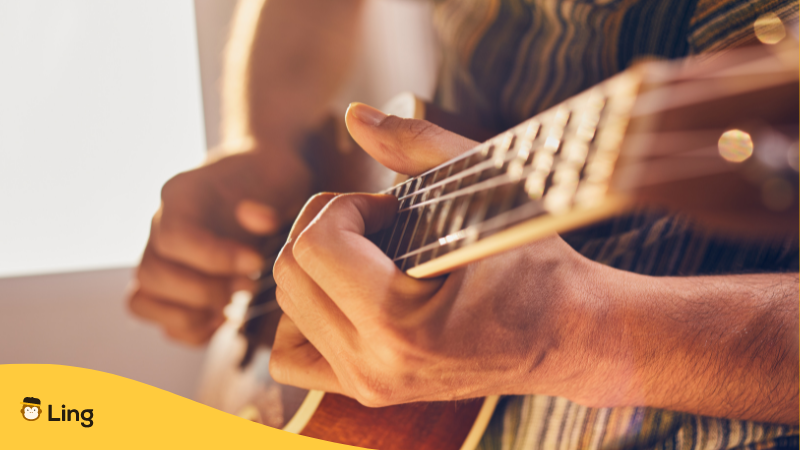
Albanian music is known for the diversity of styles across different regions, from the Ghegs in the North to the Tosks in the South. Albanian folk music traditions are very different by region. Significant stylistic differences exist between the traditional music of the Ghegs in the North and Tosks in the South.
Polyphonic vocal music and singing are important to southern Albanian folk music and are included in UNESCO’s intangible cultural heritage list.
The country’s modern music scene has also developed around Korca, Shkodër, and Tirana centers.
What is Albanian Traditional Music Called?
The traditional music of Albania is called Albanian Iso-Polyphony. It is performed in two dialects of Albanian: Tosk and Lab.
The Tosk musical dialect comprises the Albanian ethnographic regions of Toskëria, Myzeqeja, and Chamëria, while the Lab musical dialect comprises Labëria.
What Is Special About Albanian Folk Music?
Albanian folk music consists of two main traditions, the northern Gheg and the southern Labs and Tosks. It includes various types of songs, such as heroic epics, lullabies, love songs, wedding music, and work songs.
A one-stringed fiddle accompanies epic songs in northern Albania and includes:
- këngë trimash
- këngë kreshnikësh
- ballads
- maje krahi
The maje-krahi songs were initially used for long-distance communication but are now regular songs. Southern Albania’s music is polyphonic, with Vlorë (an old Albanian city) having a unique vocal tradition combining the four sections mentioned above to create a complex melody.
The South also has funeral laments and a prominent folk love song tradition. The Tosk people are known for their ensembles consisting of violins, clarinets, llautë, and def.
Southern instrumental music includes the kaba, an improvised and melancholic style led by a clarinet or violin. In addition, the ethnic Greek population of Dropulli performs music similar to the music of Epirus in Greece.
Learn More Albanian With Ling
If you’re planning a trip to Albania and want to learn the local language, the Ling app could be the perfect solution.
With over 200 easy-to-use lessons and videos, this app can help you learn Albanian quickly and effectively.
Best of all, you can access the app from any mobile device, whether on the go or not. Head to the Play Store or App Store and download Ling to enjoy its benefits.
Did you like this post?
Then, check out Interesting Facts About The History Of Albanian Language! and Household Items Vocabulary for more exciting information!
